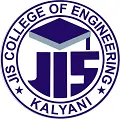Why Choose M.Tech in VLSI?
- The VLSI industry is integral to modern electronics, powering innovations in processors, memory, and integrated circuits.
- With increasing demand for low-power and high-performance electronic devices, VLSI engineers are highly sought after in global markets.
- The field offers opportunities to work on cutting-edge technologies in AI, IoT, and high-speed computing.
Curriculum:
The M.Tech in VLSI program focuses on both theoretical and practical aspects of VLSI design, including:
- Digital and Analog VLSI Design
- Semiconductor Device Physics
- Advanced Microelectronics
- VLSI Testing and Verification
- Low Power VLSI Design
- System-on-Chip (SoC) Design
- Embedded Systems and Design Tools
Internship/Practical Training:
- Industrial internships in semiconductor and electronics companies.
- Hands-on training with tools like Cadence, Synopsys, and Xilinx for designing and simulating VLSI circuits.
Job Prospects:
- M.Tech in VLSI can work in semiconductor companies, electronics design firms, and research organizations.
- Opportunities are available in sectors like consumer electronics, automotive electronics, telecommunications, and IoT.
- Top recruiters include Intel, Qualcomm, AMD, NVIDIA, Broadcom, Samsung, and Texas Instruments.
Salary Range:
- Entry-level salaries for M.Tech in VLSI professionals range from INR 6 lakh to 12 lakh per annum, depending on the company and role.
- Senior roles and expertise in specialized areas can lead to salaries exceeding INR 20 lakh per annum.
Further Studies:
- Graduates can pursue:
- Ph.D. in VLSI or Microelectronics for academic or research roles.
- Advanced certifications in FPGA design, SoC design, or embedded systems for specialized expertise.












